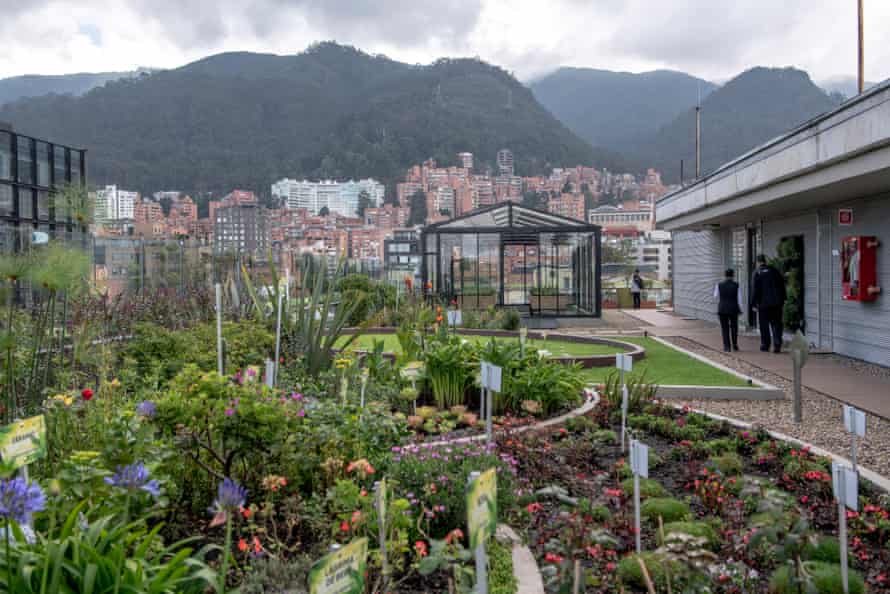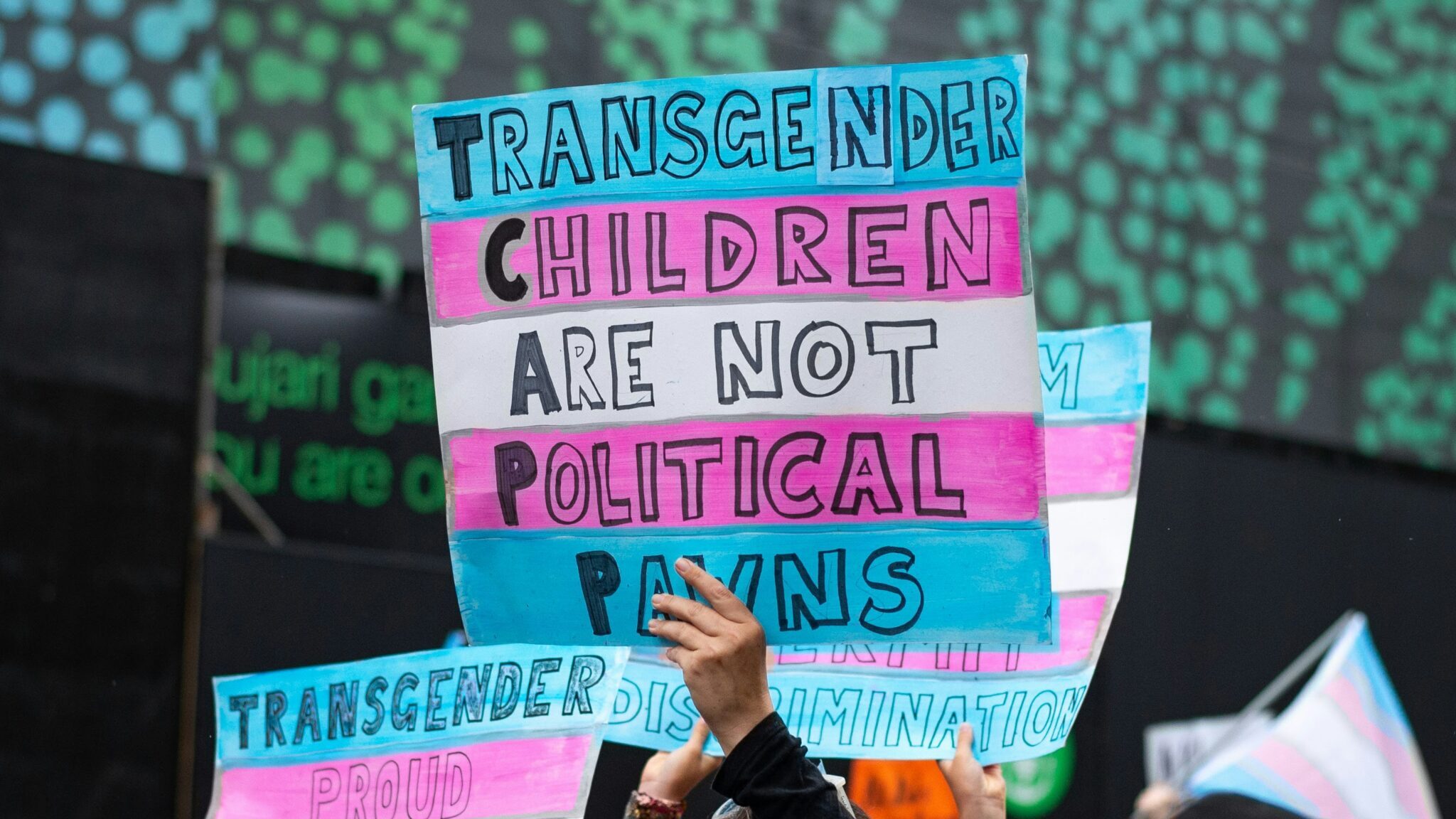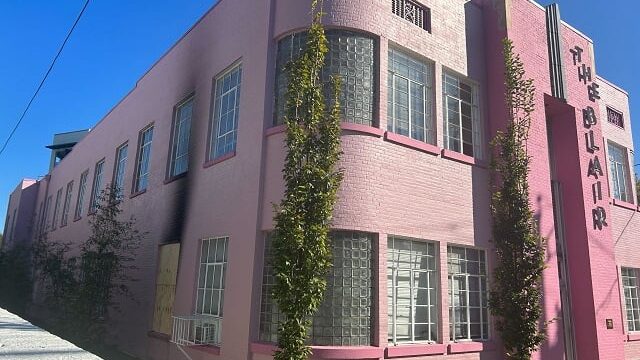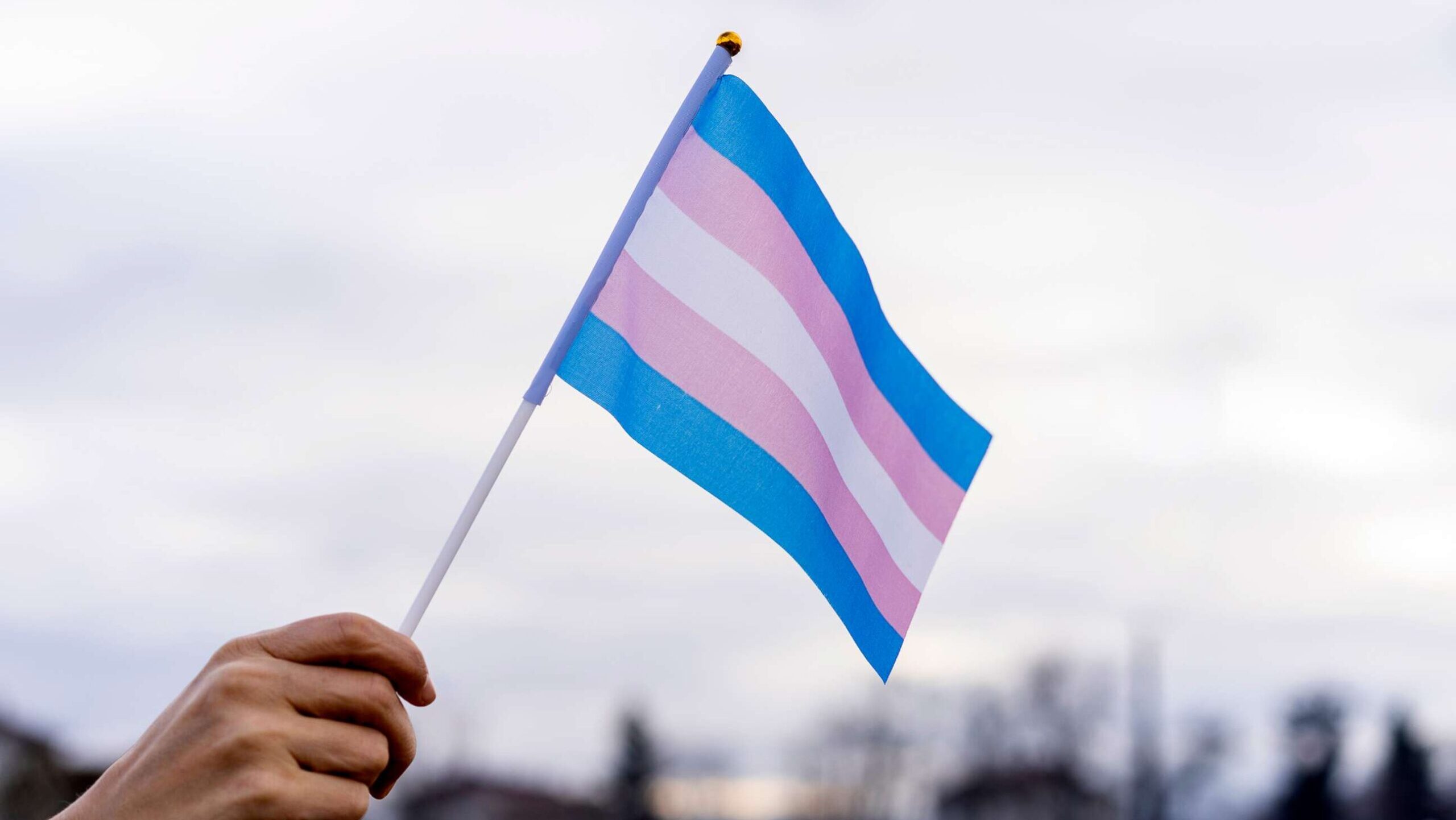Brigitte Baptiste has a high profile as a transgender Colombian woman and an ecologist – in a country where both are targeted.
When Brigitte Baptiste walks on to the 10th floor of Bogotá’s Ean University at 9.45am in a plunging dress, knee-high cheetah-print boots and a silvery wig, the office comes to life. She examines some flowers sent by the Colombian radio station Caracol to thank her for taking part in a forum, her co-worker compliments her on her lipstick, and she settles in for a day of back-to-back meetings, followed by a private virtual conversation with the UN secretary general, António Guterres. Later that evening, she flies to Cartagena for a conference on natural gas.
The 58-year-old ecologist is one of Colombia’s foremost environmental experts, and one of its most visible transgender people, challenging scientific and social conventions alike. An ecology professor at the Jesuit-run Javeriana University for 20 years, she has written 15 books, countless newspaper columns, and won international prizes for her work. Most recently, she was appointed chancellor of Ean University, a business school, as part of its push for greater sustainability.
Baptiste was one of the scientists who founded the Humboldt Institute, the leading biodiversity research centre in Colombia, and she was the director for eight years. Much of her research involved rural development, and biodiversity’s role in land management. It took her to communities from the Amazon to the coast.
She saw the “social character of conservation” and the links between war, displacement and environmental degradation. A forceful proponent of a peace deal with the Revolutionary Armed Forces of Colombia (Farc), she saw a deal as an opportunity for a “great ecological experiment” in the swaths of former Farc territory had been unexplored for years.

Baptiste is a biodiversity expert in a biodiverse country facing destructionfrom deforestation, land grabs, drug trafficking, illegal farming and the displacement of indigenous people. Water pollution from illegal gold mining and inadequate sewage systems have also taken a toll. And this year Colombia was named the world’s deadliest country for environmental defenders for the second year in a row.
Threats to activists concern her more than any other issue, which is what she planned to highlight to Guterres that night in the three minutes allotted to her.
“There is no democracy that can be built on violence, on the extermination of unarmed people,” she says. “There may be many things in Colombia that do not work well environmentally, economically – but all that goes into the background until we are able to respect human rights and guarantee the lives of all Colombians.”
Meetings with world leaders are not uncommon in Baptiste’s career, but the natural-gas conference the following day – where she push energy companies to offset carbon – is a change of pace from the insular world of academia. She decided to take on this role, and the fossil fuel industry meetings that come with it, to apply the results of a lifetime of biodiversity research, and to achieve change from within the system.
Baptiste is a believer in “green capitalism” – that the free market can promote sustainable development.
This post first appeared in theguardian




